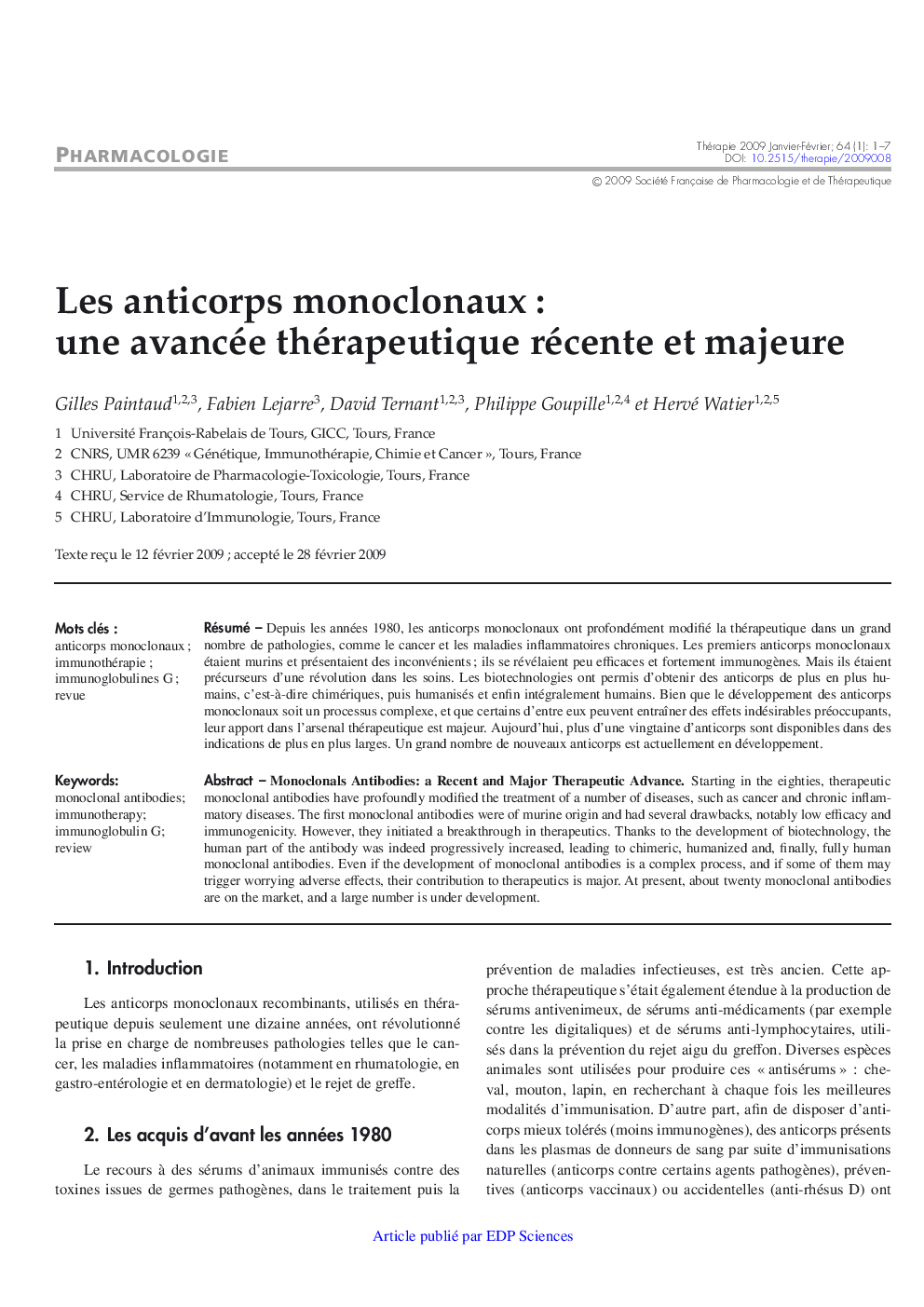| Article ID | Journal | Published Year | Pages | File Type |
|---|---|---|---|---|
| 2579375 | Thérapie | 2009 | 7 Pages |
Abstract
Starting in the eighties, therapeutic monoclonal antibodies have profoundly modified the treatment of a number of diseases, such as cancer and chronic inflammatory diseases. The first monoclonal antibodies were of murine origin and had several drawbacks, notably low efficacy and immunogenicity. However, they initiated a breakthrough in therapeutics. Thanks to the development of biotechnology, the human part of the antibody was indeed progressively increased, leading to chimeric, humanized and, finally, fully human monoclonal antibodies. Even if the development of monoclonal antibodies is a complex process, and if some of them may trigger worrying adverse effects, their contribution to therapeutics is major. At present, about twenty monoclonal antibodies are on the market, and a large number is under development.
Keywords
Related Topics
Health Sciences
Pharmacology, Toxicology and Pharmaceutical Science
Pharmacology, Toxicology and Pharmaceutics (General)
Authors
Gilles Paintaud, Fabien Lejarre, David Ternant, Philippe Goupille, Hervé Watier,
